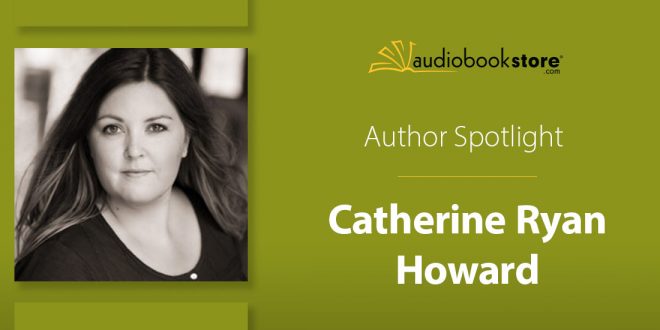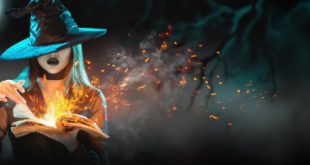Let’s be honest, Sherlock Holmes was a problematic mansplainer. Fueled by ego (and apparently lots of cocaine, as was fashionable at the time), he was often straight up rude. Using our psych degree obtained through midnight WebMD visits, we’d venture a guess he dabbles with some narcissistic personality disorder, tempered with some god-like delusions (just like every guy we’ve ever dated, amiright?). So, where do we go now for our dose of twisty mysteries? Enter Catherine Ryan Howard, an up and coming Irish author who, in 5 short years, already boasts an impressive collection of thrillers for your heart-palpitating perusal. We were lucky enough to get to interview this queen of quagmire, and got an inside look at what goes into weaving twists and turns that actually surprise. Naturally we had to share.
- We’re always impressed when an author can deliver on a good twist, and you deliver so many in each of your books! Do you plot them all out beforehand or do some organically pop up during the writing process? How do you find inspiration to create new twists and turns?
I am absolutely a plotter, not a pantser. I plot out my books in advance. This is partly because I feel like that’s the best way to work for me, and partly because if you’re playing around with sticky notes and Excel spreadsheets, you don’t have to start writing yet! I’m a master procrastinator. But I couldn’t imagine writing a book without knowing where I’m going first. I liken it to building a house: once the walls are up and the structure is sound, I can go in and do the fun bit: the interior design, which is what people will actually see. Personally I can’t build the walls and hang the wallpaper at the same time. As for twists, I usually start with the end – that’s how the idea comes to me – so I know from the get-go what ‘really’ happened. Then I step back and try to present the lead-up or aftermath to the reader in such a way that they are very unlikely to guess what’s really happened until I reveal it to them. Funnily enough in 56 Days, the biggest twist didn’t exist until the second draft, when I had a lightbulb moment and realised if I changed a couple of small things, I could make the twist even twistier. You can’t plan every last thing out in advance; the best ideas generally happen while you’re writing.
- Your native Ireland is featured in many of your books. How do you think Irish culture colors your characters/stories, if at all?
Setting a crime novel or thriller in Ireland presents some unique challenges. Two of my novels (The Liar’s Girl and The Nothing Man) feature serial killers operating on Irish soil, even though Ireland is geographically tiny, comparable to the state of Indiana, and often feels like a village. For instance, I live in Dublin, nearly three hours’ drive from my family home in Cork, and one morning I walked to a shopping centre near where I live that I’d never been to before or since. Despite this, I was spotted by a relative of mine, according to my mother back in Cork, who told me. How is a serial killer supposed to get to the ‘serial’ bit under those conditions?! But in other ways, it’s easier to write about crimes that happen here, seeing as our Gardaí (police force, it means guardians of the peace) are, for the most part, unarmed, and we don’t have specialist agencies, like the FBI’s Behaviourial Science unit.
- Your upcoming book seems to be inspired by real life lockdown (hopefully loosely based on your real life experience ;). Did you find drawing on your own quarantine moments helped you in processing the global trauma COVID caused so many?
When the first Irish lockdown hit back at the end of March 2020, I was writing a different novel about a shooting in a nightclub. It involved a lot of international travel and, well, people being in nightclubs, and with the city deserted and a nation locked down at home, it suddenly felt like science fiction to me. Then I happened to hear the UK’s deputy chief medical officer advise new couples to consider moving in together to get around the ‘no mixing between households’ rule we had in Ireland as well at the time, and an idea for a new novel started to form. I certainly put much of my real-life lockdown experience into the novel, in particular what it was like to be confined to a 2km radius that was in the centre of Dublin city, but I don’t think 56 Days processes any trauma, or tries to. The entire novel takes place between March and May 2020, so my characters don’t get a chance to do it! Lockdown is just the setting for this story. This isn’t a novel about the pandemic, it’s about something that happened to two relative strangers who were living together because of and during the early days of it.
- We know Rewind is being adapted into a feature film. What’s that been like? Are you involved in that process at all?
I’m very lucky in that a number of my novels have been optioned for screen, which is great, but the reality is that the vast majority of those that are never actually make it all the way to a TV or cinema screen. I’m very realistic about this. I think of it as having a lottery ticket: I might win, I probably won’t, but hey, it’s nice to know it’s a possibility! I’m not involved at all and don’t think I should be – I know how to write novels, but that’s it. Better to leave it to the people who know what they’re doing. Telling stories on screen is an entirely different talent. But it is very, very exciting and it would be a dream come true to see the words ‘Based on the novel by…’ on screen.
- Do you have a hard time disengaging from the dark themes you write about? Or are you an anxiety addict that’s somehow soothed by true crime like we are?
I have no trouble at all. When I’m not writing crime novels, you can usually find me watching a true-crime documentary or listening to a true-crime podcast, or reading about some old case or someone else’s crime novel. I find it all fascinating and am always on the lookout for another interesting puzzle or moral dilemma to write about. I think the act of writing crime novels is often the removal of mystery from the things that frighten us – putting a name on a faceless killer, explaining how something seemingly inexplicable could happen – and that makes them much less frightening. It’s like the real world is a dark room in which I suddenly wake up at night and see a shadow move in the corner, but the crime novel turns on the light and shows me it’s just my roommate coming to tell me I’ve slept through my alarm. Crime fiction makes me feel better.
Read Howard’s Collection of Work
Coming Soon!
 AudiobookSTORE.com Blog The AudiobookStore.com Blog is dedicated to providing audiobook consumers with the most comprehensive database of audiobook reviews on the web!
AudiobookSTORE.com Blog The AudiobookStore.com Blog is dedicated to providing audiobook consumers with the most comprehensive database of audiobook reviews on the web!









